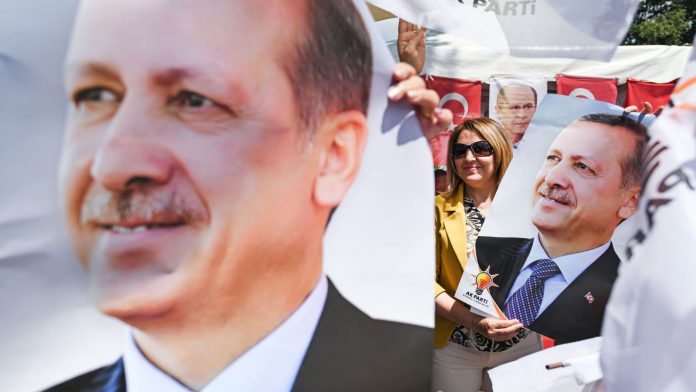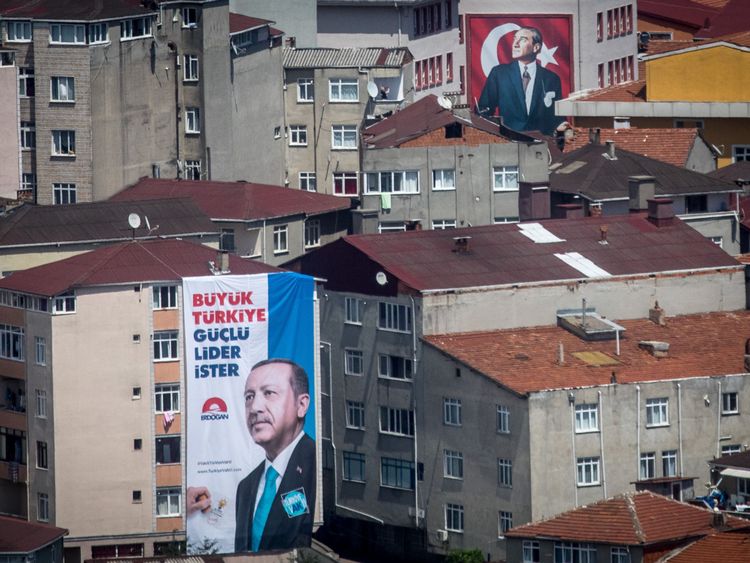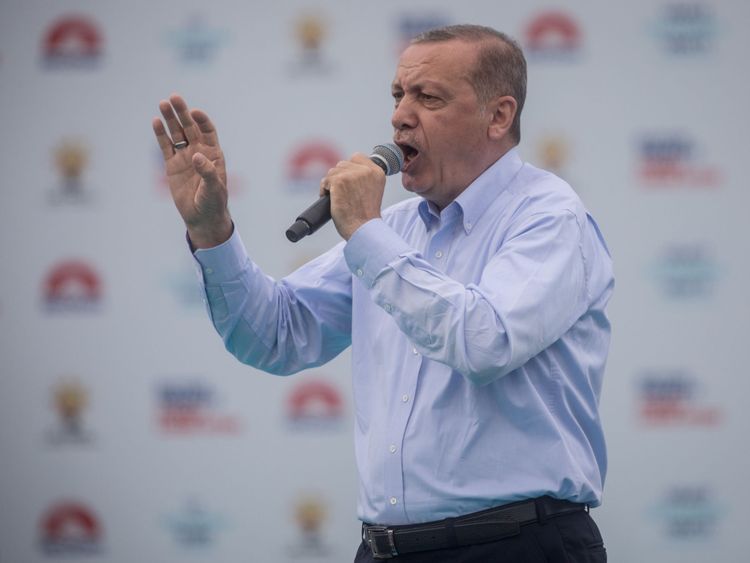[ad_1]
Candidates in Turkey’s presidential and parliamentary elections are holding final campaign rallies, 36 hours before Sunday’s vote.
The elections could be the most influential in Turkey’s history, with the new president set to inherit unprecedented powers over the country.
The current leader, President Recep Tayyip Erdogan, is favourite to be re-elected – but he is being challenged by a number of opponents and could be forced into a second round head-to-head vote in a fortnight’s time.
Mr Erdogan called the snap election eighteen months early in a bid to take his opponents by surprise and secure victory before the economy worsens.
His biggest challenger is a former physics teacher, Muharrem Ince. He has promised investment in education and better relations with the West, which have steadily deteriorated over recent months.
Polls suggest it is unlikely Mr Ince will win the presidency, but he could run close enough to force a second round on 8 July.
Turkey faces a series of domestic and foreign problems: the Turkish lira has lost around a fifth of its value against the dollar in just a year, inflation has reached double digits, Turkish forces are engaged in action in Syria and Iraq, and there is an ongoing civil war with the Kurdish population in the south east of the country.
In another challenge to President Erdogan, an unlikely coalition of opposition parties have teamed together to break the parliamentary majority enjoyed by his AKP party.
The three parties, made up of secularists, nationalists and Islamists, make unlikely bedfellows, but have come together in an attempt to break Mr Erdogan’s sixteen-year grip on power.
If they do succeed in the parliamentary elections but Mr Erdogan is re-elected, Turkey could face months of political stalemate as each side tries to thwart the other.
Turkey has lived under a state of emergency since an attempted coup in 2016.
To restore his grip on power, Mr Erdogan jailed thousands of journalists, human rights workers and anyone critical of his leadership.
“Of course the Gulanists who were blamed for the coup were the principal targets,” Emma Sinclair-Webb from Human Rights Watch told Sky News.
“But then lots of journalists as well were jailed, newspapers were closed down, television stations were closed down, human rights defenders were jailed and we had just a massive clampdown across the society against dissenting voices,” she added.
Last April, Mr Erdogan narrowly won a referendum giving the presidency greater executive powers, including the ability to appoint senior figures in politics, education and the judiciary. The opposition have pledged to scrap these reforms if elected.
“Erdogan became like a dictator in this country” an opposition activist told Sky.
“We have a lack of democracy, we have lack of justice, no education, nothing at all, so stealing is the big problem in this country.
“So even people supporting AKP – Mr Erdogan – are saying enough is enough. It’s been sixteen years!”
Even if Mr Erdogan is re-elected, if he loses his majority in Parliament then he could become both more powerful but at the same time more unpopular than ever before.
Turkey is at an important moment in its future.
[ad_2]







